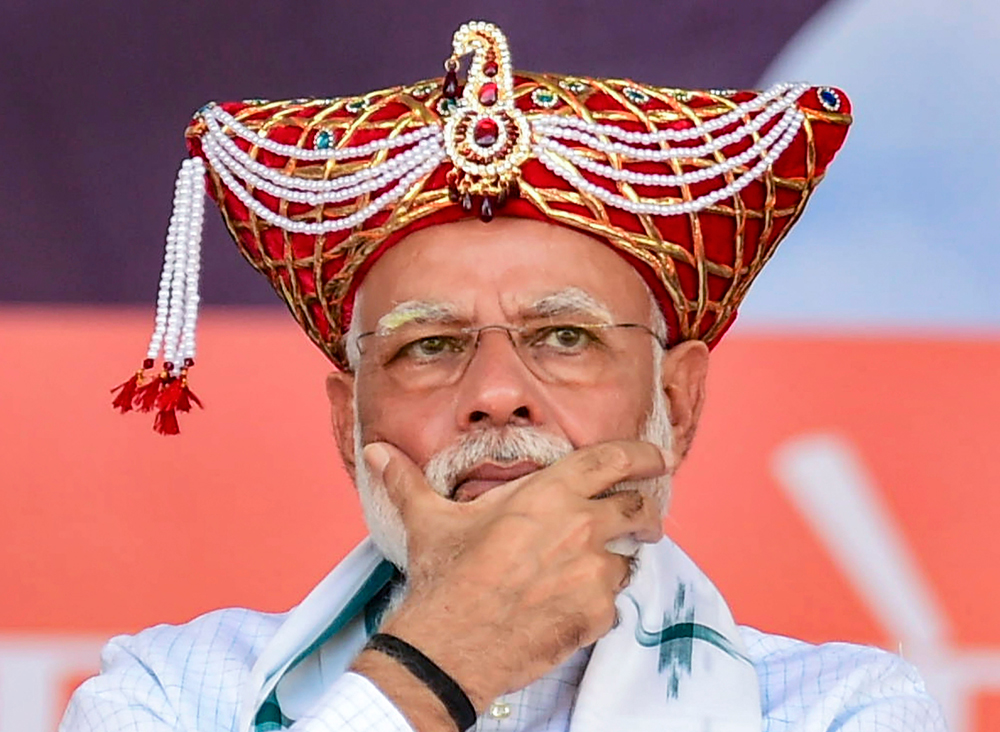The ruling Bharatiya Janata Party regime’s obsession with the epics, Ramayana and Mahabharata, is well known. The re-telecast of Ramanand Sagar’s Ramayan and BR Chopra’s Mahabharat — commissioned by Doordarshan during the Rajiv Gandhi government — has been seen as an effort to assert their importance for the ruling saffron brigade. An episode from Mahabharat is now haunting the Narendra Modi government. In the corridors of power, a parallel is being drawn between Arjun’s son, Abhimanyu, in Mahabharata and the government in the context of the countrywide lockdown to battle Covid-19. Many feel that, like Abhimanyu, who knew how to penetrate the extraordinary battle formation, ‘chakravyuh’, but was clueless about how to exit the maze, the Modi government, too, finds itself in a similar situation. Hushed voices in the power corridors say Modi very swiftly and successfully announced the lockdown in the battle against the novel coronavirus but now looks confused about the exit strategy. On Friday, the government announced another two-week extension of the nationwide lockdown while easing restrictions in zones that are relatively less affected. But the widely-circulated revised guidelines written in official language created more confusion, forcing clarifications to be issued within an hour of the announcement.
Stay connected
The Speaker of the Lok Sabha, Om Birla, and the chairman of the Rajya Sabha, M Venkaiah Naidu, have kept themselves busy through the lockdown, devising their own ways to remain connected with elected representatives. Birla held a video conference with the presiding officers of all legislatures and asked them to set up control rooms for real-time information exchange on the pandemic between parliamentarians and members of legislative assemblies. Naidu has been calling up each and every member personally besides governors, party leaders and former presidents and premiers in an exercise christened ‘Mission Connect’. Naidu, who likes to engage with journalists and was one of the few to continue to do so even in his previous avatar as a minister in the Modi government, also called up a few scribes to enquire about their well-being.
Many voices
The press WhatsApp groups of district magistrates, usually inactive or non-existent, have become hotspots for news of increasing incidents of infections, containment zones, and quarantine orders — including that of two DMs who came in contact with patients — during the lockdown. Many journalists have also vented their ire in these groups about the lack of information from some officials who, before the pandemic, were outside the radar of the press. At least one DM shut down a group after it was spammed by complaints of reporters, including some against each other. South Delhi, perhaps one of the best managed districts during the pandemic, also has such a group which is largely filled with praise for the DM, BM Mishra — also a qualified physician.
Mishra, a soft spoken officer usually shy of the limelight, broke his stoicism after the Delhi government announced that it was bringing back students from Kota. He wrote, “Why don’t you people write for some policy towards shifting migrant labourers? That may solve a major issue. That will give a lease of life to the poor people and also reduce pressure in the city [sic]”. While the Aam Aadmi Party government has publicized its hunger relief campaign, officers have been admitting off the record what Mishra said — that the working class are more desperate today than they have been in recent memory, and the priorities of governments favour those who are more affluent, like the students of Kota.
Smart approach
The conversation between the former Congress president, Rahul Gandhi, and the economist, Raghuram Rajan, was widely appreciated and viewed as a powerful tool of political messaging without directly criticizing the government’s handling of the ongoing situation. Rahul has planned to follow this up with more conversations with people from different sections of society, including experts on the economy and healthcare. At least two more conversations are said to be lined up, including with affected ordinary citizens like migrant workers, farmers, businessmen and even Covid-19 survivors.
The emphasis is on highlighting different aspects of the crisis without going into a confrontational mode with the government. Apart from bringing vital concerns into focus, this exercise is also expected to send out a message that a true leader can use every opportunity to constructively bring fresh ideas on the table, involve wider sections of society in policy formulation and move forward democratically instead of sidestepping the main concerns to indulge in PR stunts.
Footnote
A visit to a prominent market in the southern part of Calcutta revealed an overcrowded fish section even as cops could be heard blaring lockdown instructions nearby. But neither the sellers nor the buyers seemed anxious about the need to maintain social distancing. When asked whether the situation would strengthen the BJP’s allegation of Didi’s failure to implement regulations strictly, a buyer, inspecting a piece of bhetki, replied that fish in Bengal is above politics and pandemic.










